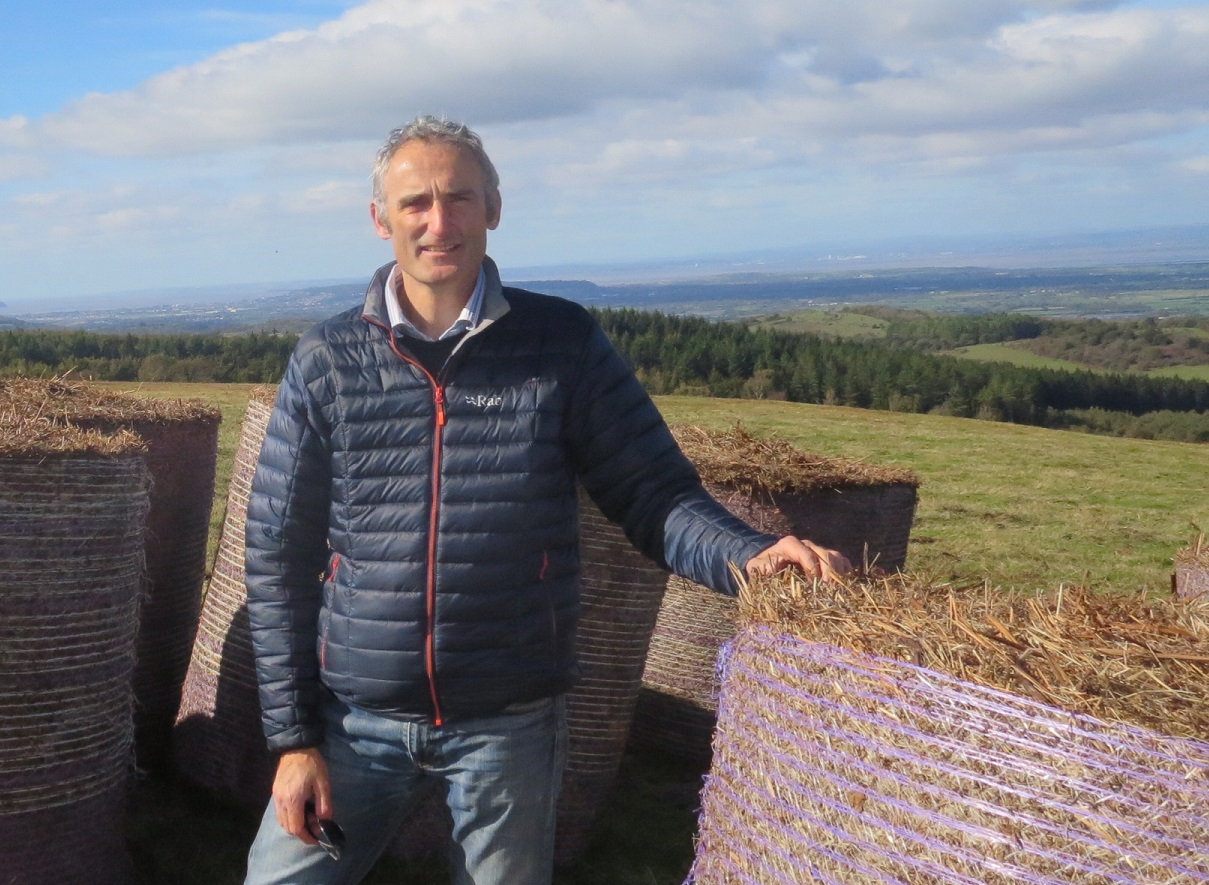
This blog is a celebration of the music of Aaron Copland.

©JohnArdoin
I first knowlingly became aware of Aaron Copland and his music the day after he died on 2 December 1990. The BBC news ran a short obituary and I can distinctly remember seeing some old black and white film footage of the ballet Rodeo. Almost certainly the news item would have also included an extract of Fanfare for the Common Man. That was a piece that was familiar to me. The pop group Emerson Lake and Palmer had had a pop hit version of this in the 70s and it was frequently used as a soundtrack at athletics meetings which I keenly watched on TV.
Something must have reached out of the TV and grabbed me by the lapels. I was just 20 and a month into my second year at University. I wasn’t listening to much classical music at the time. Instead I was getting my hands on as many LPs of Bruce Springsteen, Bob Dylan, Van Morrison Graham Parker and Marvin Gaye.
Perhaps it was the fact that Rodeo reminded me of so many of the western films that I had seen whilst growing up? My parents had an album called Big Western Movie Themes performed by James Last and his Orchestra. Another tune that formed part of the soundtrack of my young life was the High Chaparral TV theme which I watched with my Nan and Pappy.
So I guess I was already turned on by music that evoked wide open spaces and pioneering spirit. It was only later that I came to realise that Aaron Copland practically invented this type of panoramic music.
Of course I went out and bought an LP record with Fanfare for the Common Man on it. Zubin Mehta conducting the New York Philarmonic. This album also included Appalachian Spring and various Gershwin orchestral works. I had never heard Appalachian Spring before and was blown away. During my university years it became my soul music – music to revise to along with Leonard Cohen’s Greatest Hits and Enya’s Watermark.
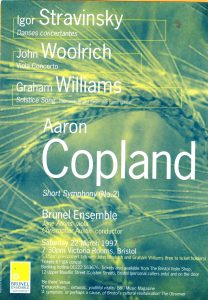 Gradually, I sought out other works. Music for Movies and in particular The Red Pony appealed to my young ears. I absolutely fell in love with opening theme Morning on the Ranch. It wasn’t until 1997 that I would go to my first Copland concert – Christopher Austin conducting the Brunel Ensemble at The Victoria Rooms in Bristol.
Gradually, I sought out other works. Music for Movies and in particular The Red Pony appealed to my young ears. I absolutely fell in love with opening theme Morning on the Ranch. It wasn’t until 1997 that I would go to my first Copland concert – Christopher Austin conducting the Brunel Ensemble at The Victoria Rooms in Bristol.
I was really eager to hear Appalachian Spring played live but had to make do with Copland’s Short Symphony. (This is quite ironic. As a mature Copland enthusiast I seek out the more infrequently played works. Copland’s Short Symphony is one of his neglected masterpieces – considered too difficult and requiring too much rehearsal time to ever have found a firm place in the repertory. I really had no idea what a rare opportunity I was being treated to.)
At this time I was going to concerts with my Mum and Sister and sometimes my sister’s former English teacher Mr Martin. The latter was an avid CD collector and mentioned that he had a copy of Copland’s opera The Tender Land and asked if I wanted to borrow it. I can’t say I had any great expectations. I just couldn’t see how you could mix opera singing with prairie living. I anticipated the worse.
Of course I loved it. The climax to act 1 the towering ensemble piece The Promise of Living took my appreciation to a whole new level. Even today when I hear this it brings a lump to my throat and tear to my eye. The piece includes a question and answer section between the deep bass voice of the Grandpa’s character and the main male protagonist Martin the tenor and then joined by Ma Moss:
For many a year I’ve known this field and know all the work that makes her yield. Are your ready to lend a hand?
I’m ready to work, I’m ready to lend a hand.
By working together we’ll bring in the harvest, the blessings of harvest
We plant each row with seeds of grain and providence sends us the sun and the rain
I was working as a researcher at an agricultural research institute at the time and this part really spoke to me deeply. Just thinking about this gets my lip a quivering! The impact of Copland’s music was so great on me that both The Promise of Living and the beginning of Appalachian Spring were played as part of the music at my wife and my wedding service.
I continued buying Copland CDs. I must admit I didn’t much care for the jazz pieces or many of the early serious works and they got infrequent listens. My girlfriend at the time suggested that Copland composed Tom and Jerry music. I was quite put out by this. Of course the implication was that Copland was composing music like Tom and Jerry whereas in actual fact Copland again was one of the first composers to create this distinctively American sound just like the influence he bore for composers of western movie soundtracks.
In a way I thought my love affair with Copland’s music had reached its zenith. It would surely be hard to match the impact of Appalachian Spring and The Tender Land. Following the Copland centennial celebrations in 2000 I don’t think I went to a single concert in the following decade or pursued his work in any greater depth.
But then in around 2008 my wife bought my the Copland biograpgy Fanfare for an Uncommon Man by Howard Pollack. I flicked through it from time to time but it was almost like I’d been there and done that. However, one day I started to read it. Not from the beginning. I would read a section about a specific work and then cross reference. All of a sudden I was sucked right back in and found that there were dozens of other Copland works that I didn’t know about.
Added to this was the fact that in the previous decade there had been a great deal of recording of previously unreleased works such as the complete film scores to Something Wild, Of Mice and Men and Our Town. I found myself hunting down these releases. My rekindled interest led me to be prepared to put in more effort to listening to the more difficult works and reevaluating ones that I didn’t immediately warm to (like believe it or not Billy the Kid and Symphony no. 3!).
Reading Pollack’s biography and finding out more about Copland’s epic failures Symphonic Ode, Statements and Connotations really drew me to these pieces. Whereas the pieces that I first loved suggest wide open spaces and huge horizons these more austere works bring to mind huge skyscrapers, hustle and bustle and claustrophobic city living. Listening to these magnificent compositions you realise just how good an orchestrator Copland was and how generous he is distributing the good bits to all parts of the orchestra.
Clashing percussion and searing brass sounds are not music that the general public associate with Aaron Copland. My view is that if you listen to a more difficult piece around 10 times it all begins to make sense and you can hear the melodies that just weren’t there at first. I was riveted and elated by this – all of a sudden I felt I had discovered some hidden treasure.
This discovery is the reason for this blog. I don’t need to extol the virtues of Copland’s accessible pieces (although I will) as they have no problem building Copland’s fan base. For me I want more people to gain a better understanding of the other side of Copland’s self-proclaimed musical split personality. In this way I feel that I am a torch bearer for the Dean of American Music.
In the mid 1930s Copland became troubled about the vacuum between contemporary classical music composers and the concert going public and he purposefully simplified his composition style and incorporated folk idioms to appeal to the widest audience possible. My aim is to try to do the inverse of this – harness the interest that so many people have in Copland’s accessible work and turn them on not only to his other less well known pieces whilst encouraging people to open up their ears to all sorts of other musical styles and composers.
I am setting myself a difficult task but I stand on the shoulders of a colossus of 20th Century music. I am so glad that I tuned into the BBC News all those years ago.

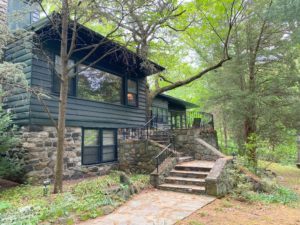
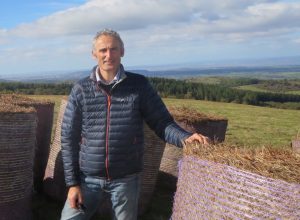
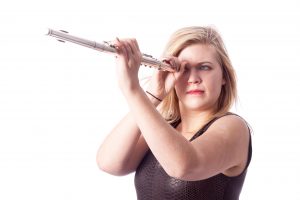

Blog Comments
Joel Deckler
28th August 2023 at 5:14 pm
I was in the upper mezzanine during Copland’s 83rd birthday concert when, during intermission, I saw a lot of people lined up outside the manager’s box, where Copland was, as the guest of honor. I asked someone on line what was happening. They said they were individually waiting to enter the box to get his autograph. My first thought was that it was rude, an invasion of his privacy, and interfering with his intermission. But after seeing people exit the box, signed program in hand, I figured he’s tolerating it so got on line too.
When I met him, the first thing I said was that we have something in common. I told him we both grew up in Brooklyn. (I lived less than a mile away, but 70 years later).
He replied, “Isn’t that amazing. We both grew up in Brooklyn but have never run into each other”.
He was known to have a very good sense of humor. BTW, Brooklyn’s population is about 2.5-3 million!
I told him my favorite piece was Down a Country Lane, only because I didn’t want to say Appalachian Spring. He was surprised, as it is a short work, written for piano students and commissioned by the late Life magazine in 1962. It borrows HEAVILY from he main theme of The Cummington Story, like note for note.
He then graciously signed my program. I will email you the photo of it.